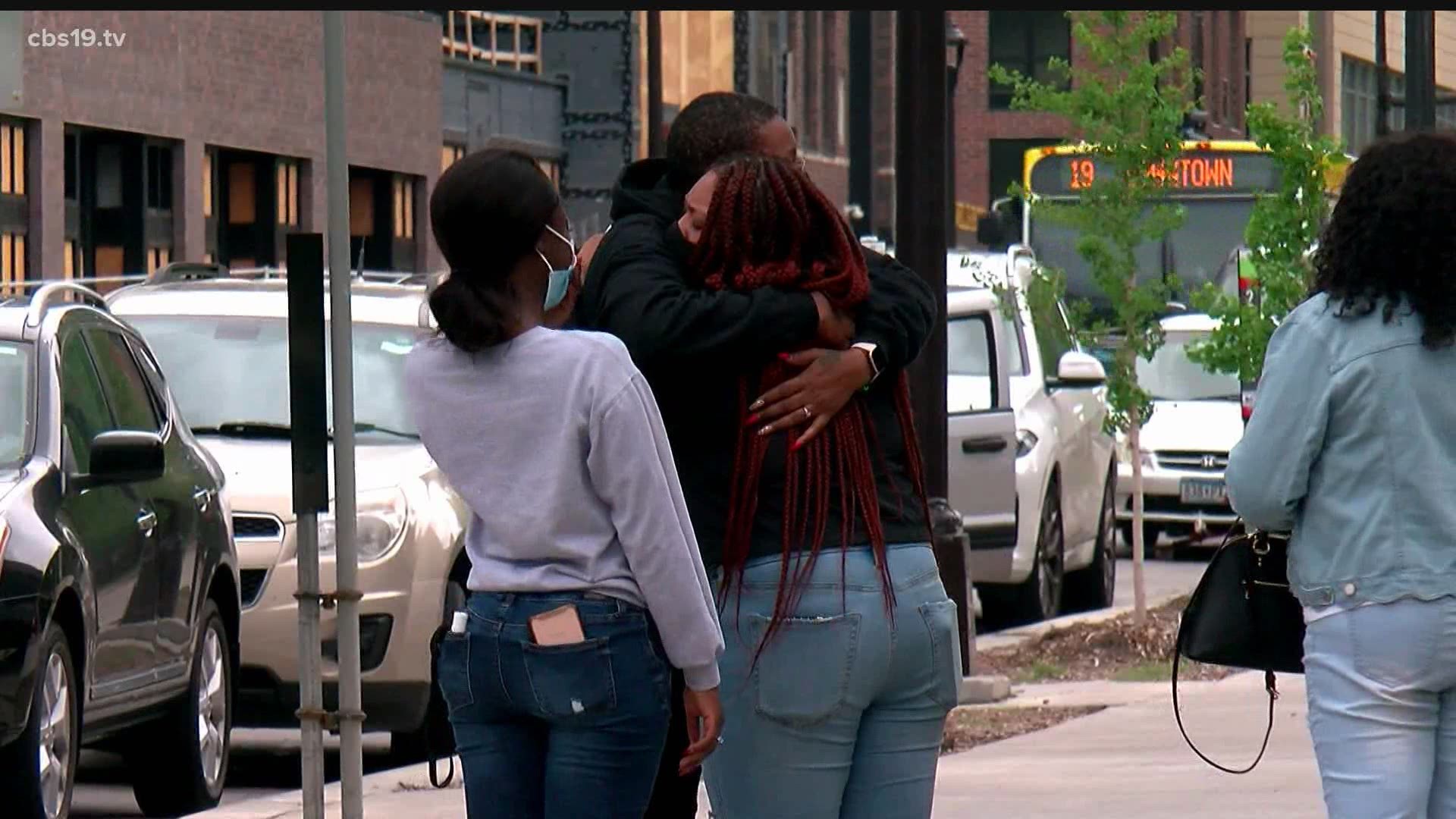TEXAS, USA — After a year and a half living of through a pandemic, many people have started to feel numb to loss- lost jobs, lost sense of self and lost loved ones.
Tyler resident Nastascia Horton recently lost her father, William Houston, to COVID-19. He was getting treatment and she thought everything would be okay.
“He's like, ‘I'm gonna go get my treatment. But soon as I get done, I'll give you a call,’ she said. "So I got to work Friday, and never got that call. So a neighbor went to go check on him, and found him passed out in the floor. And from that moment, I've never spoken to him again.”
Her dad was hesitant to get the vaccine at first but by the time he finally decided to make an appointment, it was too late.
In Texas, COVID-19 has claimed more than 50,000 lives. Worldwide, it’s claimed 3.7 million and counting.
“You're dealing with a lot of people grieving all at once," said assistant professor in communications, Natalie Pennington. "And especially early on, right? You're talking like the first six months or so. You couldn't go to funerals. You couldn't hold wakes. We couldn't all get together and those are things that really help us to manage our grief. It makes it real.”
She also said it’s best to confront your grief even when it may seem easier said than done.
“For a lot of people, it runs the risk of prolonged or complicated grief, where they're maybe not coping with those motions,” she explained.
Experts advise everyone to mourn in a way that feels natural to them. They also advise getting vaccinated. Though her dad didn’t make it, Horton breathed a slight sigh of relief that the rest of her family has their shots.
She said, “We're actually scheduled to go on vacation here in a few weeks. And we may not be as nervous about going this time. If you have access to get a vaccination, they're everywhere now. So please go and do your part so you don't have to live the story that we're going through right now.”

